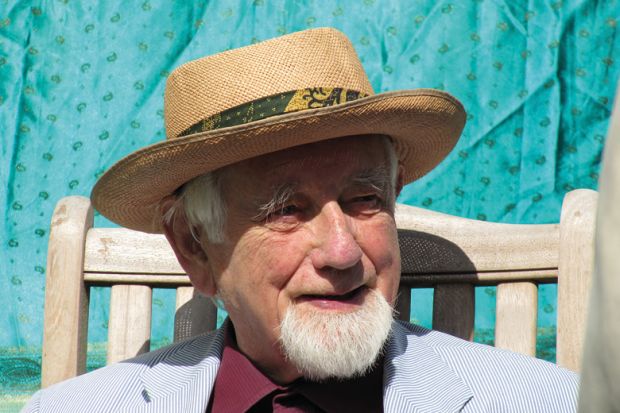Ronald Gray was born in London on 1 November 1919. After school in Battersea and Wandsworth, he won a major scholarship to read modern languages at Emmanuel College, Cambridge, although he got a chance to pursue this only when his aunt Edie offered to put up the “caution money” of £50.
Although he started his degree in 1938, Dr Gray did not graduate until 1945, since he spent most of the war as a captain in the armed forces.
Already a brilliant Germanist, he was recruited to work at the codebreaking centre at Bletchley Park, where his most memorable moment was translating a message that read “Our shield and Führer Adolf Hitler is dead”.
He then worked at the University of Zurich (1947-48) and as a lektor in English at the University of Basel (1948-49), gaining a PhD (1949) for his research on Goethe’s scientific studies.
It was at this point that Dr Gray returned to Cambridge for the rest of his life, as assistant lecturer (1949-57) and then lecturer (1957-82) in German. From 1958, he was also a fellow at Emmanuel, where he went on to serve as treasurer, domestic bursar and vice-master.
Along with general studies of German literature, he wrote two books each on Goethe, Kafka and Brecht as well as studies of Ibsen and Shakespeare.
“Of the distinguished British Germanists of the last half-century,” said John Harvey, fellow in English at Emmanuel, Dr Gray was “among the most prolific, and the most radical in probing the German tradition.
“When he ceased lecturing to the young, he joined the University of the Third Age, where, with weakening vocal chords, he could hold an audience rapt through his nineties.
“When that stopped, still he would shuffle regularly into Emmanuel, peering over his glasses with his failing eyes and looking like a cross between King Lear and an owl – but keen still to discuss alchemy, West End theatre or Shakespeare’s Dark Lady.
“As a younger man he had a fine presence. For many years he was a senior sponsor of the Marlowe Dramatic Society and also acted in their plays. I had first seen him in the 1960s, taking a demotic part in Brecht’s Galileo, where he added to the student production a robust, nuanced voice from the world of wars and life.”
Dr Gray died on 19 November 2015 and is survived by his partner Dorothy Sturley, a son and a daughter.
Register to continue
Why register?
- Registration is free and only takes a moment
- Once registered, you can read 3 articles a month
- Sign up for our newsletter
Subscribe
Or subscribe for unlimited access to:
- Unlimited access to news, views, insights & reviews
- Digital editions
- Digital access to THE’s university and college rankings analysis
Already registered or a current subscriber? Login




